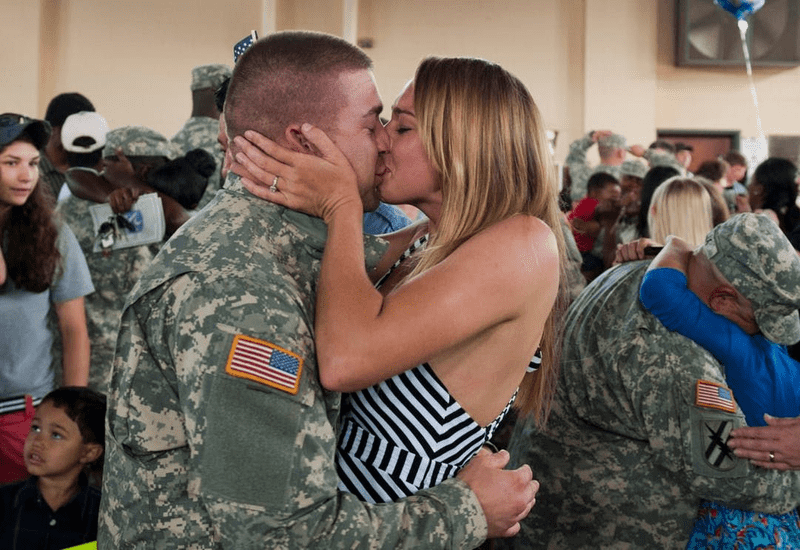Did you know that doctors who work for the United States Department of Veterans Affairs (VA) aren't allowed to prescribe medical marijuana to veterans? It doesn't matter if the doctors and patients live in states where medical marijuana is legal. Moreover, doctors can't even talk to veterans about the advantages of marijuana AT ALL! How's that for free speech in America?
Congress Takes Action (Seriously)
As you might have guessed, as a doctor, this marijuana gag order makes me gag. There's reason to be optimistic, though. Some of our elected leaders are coming around. For instance, in 2016, 21 U.S. House members and senators sent a letter to the VA. This group included Democrats and Republicans, and the message was in favor of medical marijuana.
You see, the no-cannabis VA policy was set to expire in late January
- Therefore, those lawmakers were trying to change the minds of VA leaders. Their letter stated that VA doctors who practice in states where medical marijuana is lawful should be able to discuss this kind of therapy.
The Senate actually approved that rule change back in November 2015. At the time, it was included in a funding bill. But of course, politics is complicated. The bill got rewritten, and this policy was taken out. Therefore, it never became law. And I thought medical school was hard!
Can the CARERS Act Save the Day?
There's still hope for this legal change. It could become part of the 2016 appropriations bill. If it does, though, it would need to be voted on each year to remain law. Or it could become a separate law. If that were the case, it would be a permanent statute, and Congress wouldn't have to keep voting on it annually.
Indeed, in March 2015, Sen. Cory Booker, D-N.J., Sen. Kirsten Gillibrand, D-N.Y., and Sen. Rand Paul, R-Ky., proposed just such a law. It's called the Compassionate Access, Research Expansion and Respect States (CARERS) Act of 2015.
If CARERS passes, states could legalize medical marijuana as they deem fit. Also, medical researchers would have more freedom to study the benefits of this therapy. And yes, VA doctors could finally recommend it to their patients as state law permits.
Battling PTSD
Many veterans who are returning from battle face special health issues. Post-traumatic stress disorder (PTSD) is one of them. PTSD is a term for the depression and anxiety that happen after a trauma. The disorder often involves vivid flashbacks, nightmares, social isolation and a tendency to become violently startled. It can also lead to insomnia and extreme eruptions of anger.
Naturally, the horrors of combat often bring about PTSD. However, scientific evidence is showing that medical marijuana can really reduce its effects.
Take, for instance, a study that was led by Dr. George Greer of the nonprofit Heffter Research Institute. Between 2009 and 2011, researchers looked at how medical marijuana affected those with PTSD. The Journal of Psychoactive Drugs published the results, which were highly encouraging. The average patient who used cannabis had his or her PTSD effects lessened by a whopping 75 percent!
Reducing Chronic Pain
If you're a vet, you might be dealing with chronic physical pain due to the wounds you sustained when you were fighting for our country. When it comes to pain relief, medical marijuana shows great promise as well.
For example, in December 2015, the Journal of Pain put out the results of a major study on cannabis and chronic pain, one that began in 2004. Dr. Mark Ware of Montreal's Research Institute of the McGill University Health Centre led this endeavor. (Medical marijuana is legal in Canada.) Several Canadian pain treatment facilities worked together on this study. Researchers carefully followed 215 adults, each for a one-year period. All of those participants had the option of eating, smoking or inhaling their cannabis. Meanwhile, a control group of 216 chronic pain patients went without marijuana for a year.
It demonstrated that, while marijuana provided pain relief, it didn't lead to any higher rates of serious side effects. On top of that, the cannabis frequently put many of the patients in better moods.
Hope for Vets Who Want Medical Marijuana
Finally, remember that no VA doctor will ever be forced to prescribe cannabis. And no veteran should ever be pressured to take it. It'll simply become another treatment option that doctors and patients should be allowed to talk about in privacy. If the DEA gets their act together and take cannabis off of the Schedule 1 list, formal studies in the United States could finally begin in earnest. When the VA actually realizes that that all studies from around the world to date show the enormous benefit of cannabis to treat PTSD and chronic pain, our brave men and women who've served in the armed forces can get the relief they deserve.
